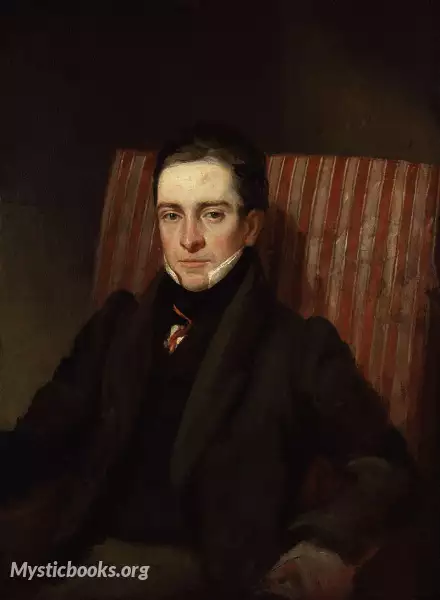
Timeline
Title
Country/Nationality
Thomas Hood
Thomas Hood was an English poet, author and humorist, best known for poems such as "The Bridge of Sighs" and "The Song of the Shirt". Hood wrote regularly for The London Magazine, Athenaeum, and Punch. He later published a magazine largely consisting of his own works. Hood, never robust, had lapsed into invalidism by the age of 41 and died at the age of 45. William Michael Rossetti in 1903 called him "the finest English poet" between the generations of Shelley and Tennyson. Hood was the father of the playwright and humorist Tom Hood (1835–1874) and the children's writer Frances Freeling Broderip (1830–1878).
homas Hood was born to Thomas Hood and Elizabeth Sands in the Poultry (Cheapside), London, above his father's bookshop. His father's family had been Scottish farmers from the village of Errol near Dundee. The elder Hood was a partner in the business of Vernor, Hood and Sharp, a member of the Associated Booksellers. Hood's son, Tom Hood, claimed that his grandfather had been the first to open up the book trade with America and had had great success with new editions of old books.
Hood married Jane Reynolds (1791–1846). on 5 May 1824. They settled at 2 Robert Street, Adelphi, London. Their first child died at birth, but a daughter, Frances Freeling Broderip (1830–1878), was born soon after they moved to Winchmore Hill, and after they had then moved in 1832 to Lake House, Wanstead, a son, Tom Hood (1835–1874), was also born. Both children took up in Hood's profession: Frances became a children's writer and Tom a humorist and playwright, and they later collaborated in collecting and publishing their father's work. Although constantly worried about money and health, the Hoods were a devoted, affectionate family, as Memorials of Thomas Hood (1860), based on his letters and compiled by his children, testifies.
Odes and Addresses – Hood's first volume – was written in conjunction with his brother-in-law John Hamilton Reynolds, a friend of John Keats. Coleridge wrote to Lamb averring that the book must be the latter's work. Keats wrote two poems for Jane Reynolds: "O Sorrow!" (October 1817) and "On a Leander Gem which Miss Reynolds, my Kind Friend, Gave Me" (c. March 1817). Also from this period are The Plea of the Midsummer Fairies (1827) and a dramatic romance, Lamia, published later. The Plea was a book of serious verse, but Hood was known as a humorist and the book was ignored almost entirely.
Hood was fond of practical jokes, which he was said to have enjoyed inflicting on members of his family. In the Memorials there is a story of Hood instructing his wife Jane to purchase some fish for the evening meal from a woman who regularly came to the door selling her husband's catch. But he warns her to watch for plaice that "has any appearance of red or orange spots, as they are a sure sign of an advanced stage of decomposition." Mrs Hood refused to purchase the fish-seller's plaice, exclaiming, "My good woman... I could not think of buying any plaice with those very unpleasant red spots!" The fish-seller was amazed at such ignorance of what plaice look like.
The series of the Comic Annual, dating from 1830, was a type of publication popular at the time, which Hood undertook and continued almost unassisted for several years. He would cover all the leading events of the day in caricature, without personal malice, and with an undercurrent of sympathy. Readers were also treated to an incessant use of puns, of which Hood had written in his own vindication, "However critics may take offence,/A double meaning has double sense", but as he gained experience as a writer, his diction became simpler.
Books by Thomas Hood
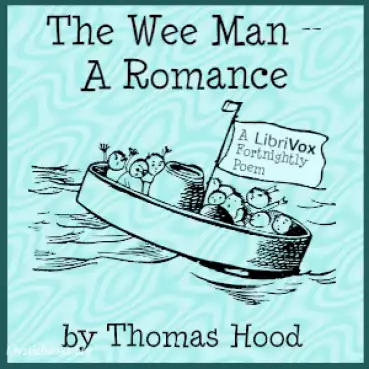
The Wee Man - A Romance.
A Romance by Thomas Hood. Thomas Hood was an English poet, author and humorist, best known for poems such as "The Bridge of Sighs" and "The Song of the Shirt". Hood wrote regularly for The London Magazine, Athenaeum, and Punch. He later published a m...
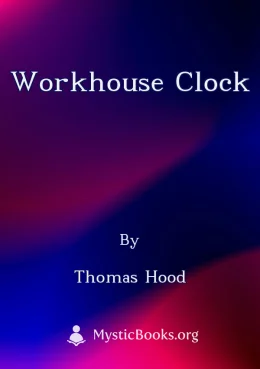
Workhouse Clock
Thomas Hood's 'Workhouse Clock' is a poignant and powerful poem that depicts the harsh realities of life in a Victorian workhouse. Written with stark imagery and a biting sense of social commentary, the poem explores the suffering of the poor and des...

Sally Simpkin's Lament; or, John Jones's Kit-Cat-Astrophe
This poem, written by the renowned Victorian humorist Thomas Hood, tells the story of Sally Simpkin, a young woman whose beloved cat, John Jones, tragically dies. The poem uses a combination of humor and pathos to explore themes of love, loss, and th...
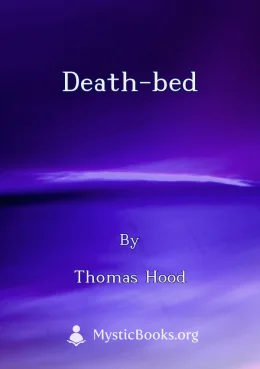
Death-bed
Death-bed by Thomas Hood is a satirical poem that explores the themes of death, mortality, and the human condition. The poem is written in a humorous and ironic tone, and it features a cast of characters who are all facing their own mortality. Hood u...
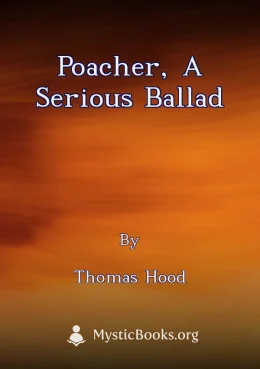
Poacher, A Serious Ballad
Thomas Hood's 'The Poacher' is a poignant ballad exploring the life of a man driven to poaching by poverty and social injustice. The poem uses vivid imagery and heartfelt language to depict the harsh realities faced by the working class in rural Engl...
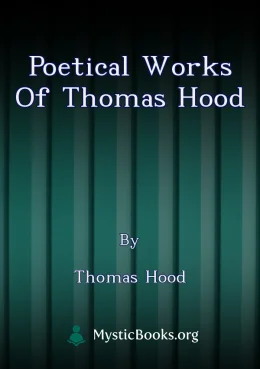
Poetical Works of Thomas Hood
This collection compiles the poetic works of Thomas Hood, a prominent English poet of the 19th century. Known for his distinctive blend of humor, satire, and social commentary, Hood's poetry often explored themes of human folly, societal injustices,...
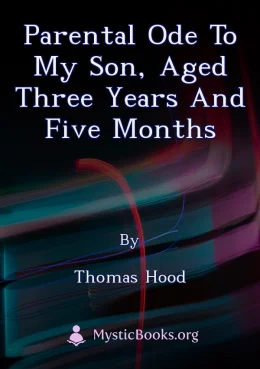
Parental Ode to My Son, Aged Three Years and Five Months
In 'A Parental Ode to My Son, Aged Three Years and Five Months', Thomas Hood presents a humorous and affectionate portrayal of fatherhood through the eyes of a beleaguered parent. The poem is a series of interjections and contradictions, as the fathe...